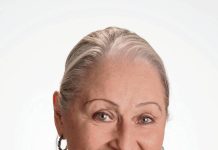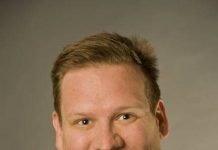From: Beth Sullivan
Hope
I am a counselor at Windrose Health Network and recently had the pleasure of spending time at our Epler Parke Center office in Indianapolis. This location serves a very large immigrant and refugee population. The time spent there gave me food for thought.
Have you ever moved from one city to another? Did you have to find the closest grocery store or gas station? Did you ever have to try to figure out public transportation? How about finding a new doctor when you really liked the one you had at home?
I met some people who not only had to move to a new town but a new continent. The lives of the refugees must have been terrible in their homeland to leave all that is familiar and arrive in a place that is totally unfamiliar, to leave a country that they may have loved but is now at war, to leave behind families and belongings to travel through awful conditions to arrive in America.
What does America look like through the eyes of a young child from the continent of Africa or the eyes of a child from Myanmar? The language is different, with sounds that are so foreign it must sound like gibberish. The noise of the city and the smells must be overwhelming. What does it feel like coming to a city where people look and dress differently? How do you know what the rules are? How do you fit into the community?
The role a federally qualified health center plays in the lives of these people is critical to their resettling in the United States. We are ambassadors for all Americans. We are the faces of health care to people who may have never had medical care in their homeland or the medical care was limited. The FQHC must be a welcoming place that feels safe. Helping someone navigate the health care system that many American-born citizens find confusing is an awesome responsibility.
We must be compassionate and caring and embrace our differences. One way Windrose Health Network and other FQHCs have found to show our care is by having translators from the homelands who were also once refugees. They are the example that other newcomers can look up to and know life here may be difficult but can be accomplished.
One of our doctors was overheard talking to another doctor. The other doctor was commenting on how terribly difficult it must be to take care of these people. She simply shrugged and said, “It’s not hard at all. They’re just regular people. No different from anyone else.” Not black, not white. Not Muslim, not Christian. Not old, not young. Not English-speaking, not Burmese-speaking. Just regular people.
For the rest of us who work at FQHCs, the way to show our care and compassion is simple. A smile is a smile in any language.



